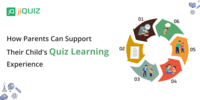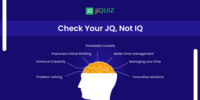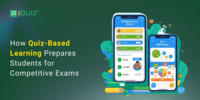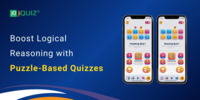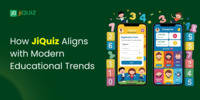- Jul 18, 2025
Share this post on:
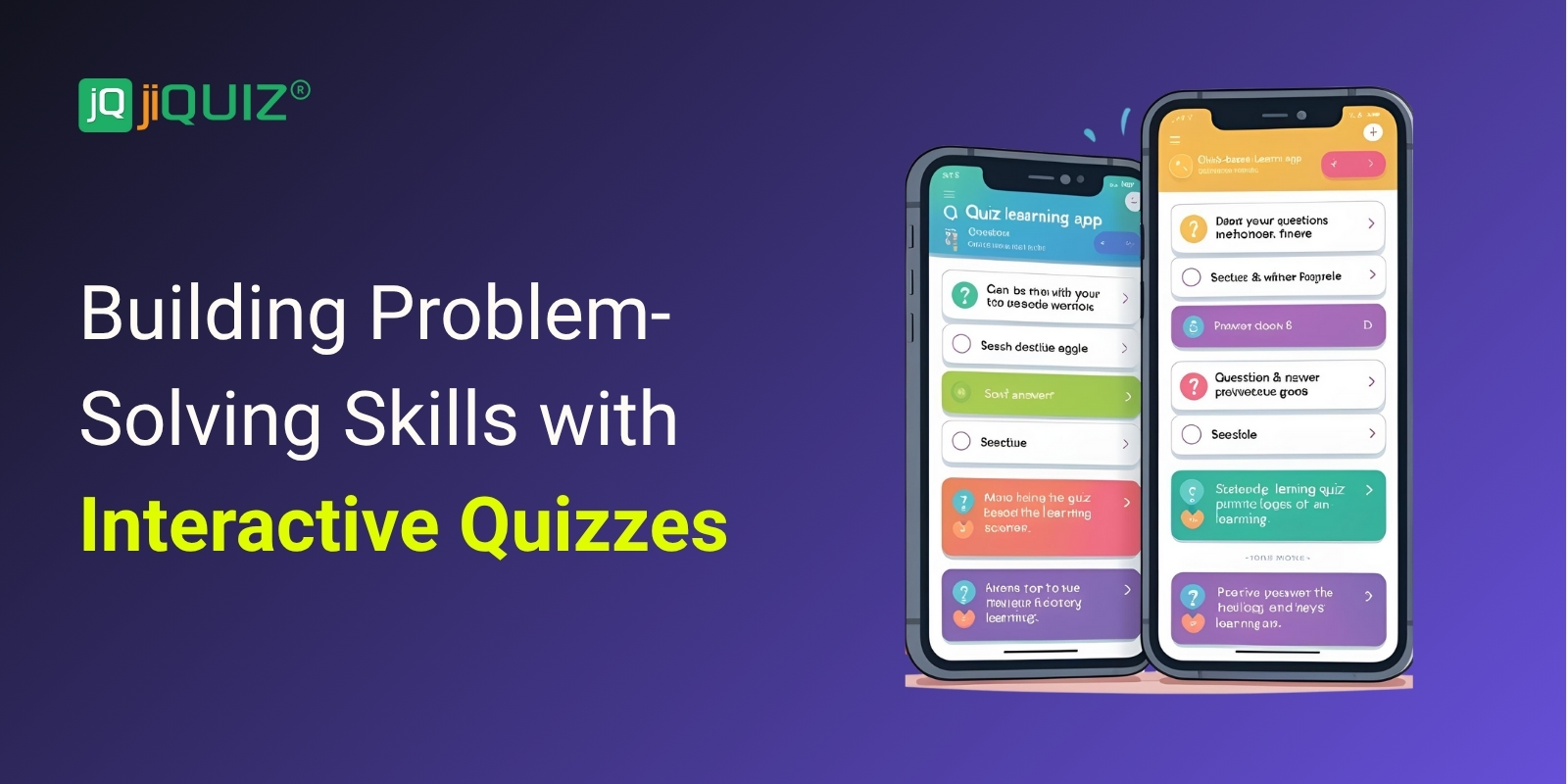
Problem-solving. It’s a buzzword you hear in job interviews, performance reviews, and even parenting discussions. But it’s more than just a trendy phrase; it’s a critical life skill. From navigating daily challenges to tackling complex professional hurdles, the ability to analyze, strategize, and find solutions is paramount to success and personal fulfillment. And guess what? You can actively build this skill. Enter: Interactive quizzes.
This blog post will explore why problem-solving is so vital, how interactive quizzes can be a powerful tool for development, and practical strategies for leveraging them effectively.
Why Problem-Solving Matters – More Than Just Finding Answers
Let's be honest, most of us think of problem-solving as simply figuring out how to fix something that's broken. While that’s part of it, the skillset extends far beyond that. True problem-solving involves:
- Critical Thinking: Evaluating information objectively, identifying biases, and forming reasoned judgments.
- Analytical Skills: Breaking down complex issues into manageable components.
- Creativity: Generating novel and effective solutions.
- Decision-Making: Weighing options and choosing the best course of action, even with incomplete information.
- Adaptability: Responding effectively to unexpected changes and setbacks.
- Communication: Clearly articulating problems, proposed solutions, and justifications.
In today's rapidly changing world, these skills are increasingly valuable. Automation is taking over routine tasks, meaning humans need to focus on roles requiring complex thought and innovation. Furthermore, personal resilience – the ability to bounce back from adversity – is strongly linked to effective problem-solving abilities.
The Power of Interactive Quizzes: A Surprisingly Effective Tool
So, how do you build these crucial skills? Traditional methods like lectures and textbooks have their place, but interactive quizzes offer a unique and engaging approach. Here's why:
- Active Learning: Quizzes force you to apply your knowledge, not just passively absorb it. This active recall strengthens neural pathways and improves retention.
- Immediate Feedback: Most interactive quizzes provide instant feedback, highlighting areas where you need to improve. This real-time correction is far more effective than waiting for a graded assignment.
- Low-Pressure Environment: Quizzes provide a safe space to experiment and make mistakes without the fear of negative consequences. This encourages risk-taking and exploration.
- Gamification: Many interactive quizzes incorporate game-like elements (points, badges, leaderboards) which can make the learning process more motivating and enjoyable.
- Diverse Problem Types: Well-designed quizzes expose you to a wide range of problem types, broadening your problem-solving repertoire.
- Accessibility: Interactive quizzes are readily accessible online, allowing for learning on-the-go and at your own pace.
Types of Interactive Quizzes for Problem-Solving Development
Not all quizzes are created equal. To truly build problem-solving skills, look for these types:
- Logic Puzzles: These challenge your ability to deduce solutions based on given clues (e.g., Sudoku, KenKen, logic grids). They hone analytical thinking and pattern recognition.
- Scenario-Based Quizzes: Present realistic situations that require you to make decisions and consider consequences. These are particularly valuable for developing decision-making skills in a practical context. (e.g., "You're a project manager, and your team is facing a critical deadline...")
- Coding Challenges: Even if you're not a programmer, coding challenges (many available on platforms like HackerRank or LeetCode) can sharpen your logical thinking and algorithmic reasoning. Breaking down a coding problem is fundamentally a problem-solving exercise.
- Critical Reasoning Tests: Designed to assess your ability to analyze arguments, identify assumptions, and draw conclusions. These are common in job assessments.
- "What Would You Do?" Quizzes: These present ethical or professional dilemmas and require you to choose the best course of action, justifying your reasoning.
- Estimation & Approximation Quizzes: These challenge you to make educated guesses and estimations, developing your ability to work with incomplete information.
How to Choose the Right Interactive Quizzes: Quality Matters
Just like any learning tool, not all interactive quizzes are created equal. Here’s what to look for:
- Clear Objectives: Does the quiz have a specific learning objective? A good quiz shouldn’t just be about trivia; it should focus on building specific skills.
- Well-Designed Questions: Questions should be clear, unambiguous, and challenging. Avoid vague or misleading wording.
- Explanations & Feedback: Crucially, a good quiz provides detailed explanations for both correct and incorrect answers. This is where the real learning happens. Simply knowing what the right answer is isn't enough – you need to understand why it's the right answer.
- Variety & Difficulty Levels: The quiz should offer a range of problem types and difficulty levels to cater to different skill levels.
- Reputable Source: Choose quizzes from reputable sources, such as educational websites, professional organizations, or established quiz platforms.
Practical Strategies for Maximizing the Benefits
Simply taking a quiz isn't enough. Here's how to leverage interactive quizzes to truly build problem-solving skills:
- Embrace the Struggle: Don't be afraid to get questions wrong. Mistakes are valuable learning opportunities. Actively analyze why you got the answer wrong.
- Don't Rush: Take your time to carefully consider each question. Resist the urge to jump to the first answer that comes to mind.
- Explain Your Reasoning: Verbalize your thought process, either aloud or in writing. This helps you clarify your thinking and identify any gaps in your logic. "Okay, I'm thinking this because... but what if...?"
- Research & Learn: If you're struggling with a particular type of problem, take the time to learn more about the underlying concepts.
- Seek Feedback: Discuss the quiz results with a mentor, colleague, or friend. Their perspectives can provide valuable insights.
- Regular Practice: Consistent practice is key to developing any skill. Make interactive quizzes a regular part of your learning routine.
- Reflect on the Process: After completing a quiz, take a moment to reflect on your performance. What did you learn? What areas do you need to improve? How can you apply this knowledge to real-world situations?
- Combine with Other Methods: Quizzes shouldn't be your only method of learning. Supplement them with reading, lectures, discussions, and real-world experiences.
Resources for Finding Interactive Problem-Solving Quizzes
Here’s a starting point for finding valuable quizzes:
- Brilliant.org: Offers a wide range of interactive courses and quizzes covering math, science, and computer science.
- HackerRank: Primarily focused on coding challenges, but also includes problem-solving tests.
- Codewars: Another platform for coding challenges and skill development.
- CriticalReasoning.org: Dedicated to critical reasoning tests and exercises.
- Indeed Assessments: Indeed offers a variety of skill assessments, including problem-solving tests.
- Online Learning Platforms: Platforms like Coursera, edX, and Udemy offer courses that incorporate interactive quizzes.
- Quizlet: While not exclusively problem-solving focused, you can find user-created quizzes on a wide range of topics.
Key Takeaways
- Problem-solving is a critical skill: Essential for personal and professional success.
- Interactive quizzes offer a powerful learning tool: Active learning, immediate feedback, gamification, and accessibility.
- Quality matters: Look for quizzes with clear objectives, well-designed questions, and detailed explanations.
- Active engagement is key: Embrace the struggle, explain your reasoning, and seek feedback.

